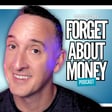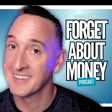
🎙️ Money Podcasts Success: How Joe and Paula Built Loyal Audiences and Turned Passion into Profits 💰
Watch and Subscribe on YouTube
🪙 Joe Saul-Sehy (Stacking Benjamins) and Paula Pant (Afford Anything) reveal how they built their money podcasts into profitable passion projects, sharing the secrets behind their long-term success in podcasting.
🎨 This conversation explores the journey of building profitable podcasts, the logistics of guest management, and how hosts decide which trends to follow and which to avoid.
In this episode, we discuss:
1️⃣ How to Start a Money Podcast: Joe and Paula share how they began, and their strategies for building loyal audiences.
2️⃣ Monetizing Your Podcast: They reveal how money podcasts make money and how to create sustainable revenue streams.
3️⃣ Guest Selection and Vetting: How to choose engaging guests and avoid common mistakes.
4️⃣ Balancing Podcasting and Entrepreneurship: Insights on managing a podcast while pursuing other business ventures.
5️⃣ Podcast Growth Strategies: From viral episodes to organic growth, learn how to scale your podcast.
6️⃣ Challenges in Podcasting: Behind-the-scenes struggles, including interviews that never aired and topics they regret covering.
🔗 Joe Saul-Sehy's Links:
📚 Joe’s Stacking AdventuresTravel Podcast
📝 Joe Saul-Sehy's book: Stacked: Your Super-Serious Guide to Modern Money Management
🔗 Paula Pant's Links:
📚 Afford Anything Course: Your First Rental Property
🔗 David's Links:
🍏 Forget About Money on Apple Podcast
🎧 Forget About Money on Spotify
📜 Joe Saul-Sehy & Paula Pant Quotes:
💡 "Podcasting is all about relationships—you grow one download at a time by staying authentic." — Joe Saul-Sehy
🔗 "It's not just about making money from a podcast; it's about creating meaningful content that resonates." — Paula Pant
#podcast #podcasting #howtostartapodcast #podcastgrowth #podcastguests #podcastinglife #podcastingjourney #financialindependence
🎧 Listen & Subscribe: Hit subscribe for more strategies on building wealth and achieving financial independence. Tap the bell icon 🔔 to stay updated!
Disclaimer: This episode is for entertainment and educational purposes only. Always consult a professional for personalized financial or business advice.

